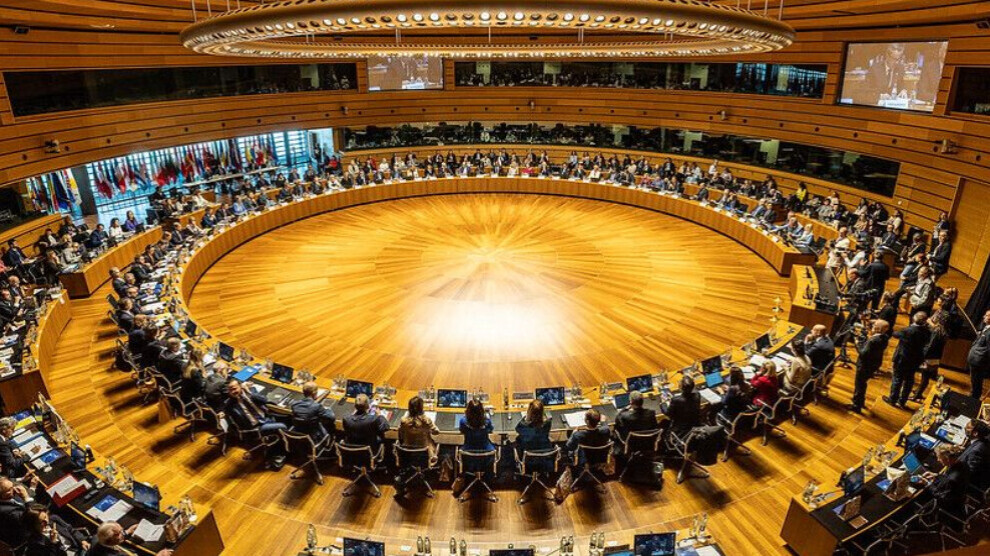Council of Europe Committee of Ministers’ 'Right to Hope' deadline expires in 3 months
The deadline given by the Council of Europe Committee of Ministers regarding the 'right to hope' decision for Öcalan is set to expire in September 2025.
The deadline given by the Council of Europe Committee of Ministers regarding the 'right to hope' decision for Öcalan is set to expire in September 2025.

Following Abdullah Öcalan's Call for Peace and a Democratic Society on 27 February and the PKK's announcement of its dissolution on 12 May, attention has turned to the legal steps the Turkish state may take.
The 10th judicial reform package, introduced before the Eid al-Adha holiday, fell short of expectations, and it was announced that the continuation of reforms would be postponed until September. During the discussions on the reform package, opposition proposals, especially from the DEM Party, were largely ignored.
Since the PKK's announcement of its dissolution, there have been repeated calls for improving Öcalan’s physical detention conditions, but no progress has been made. Aside from a family visit during Eid al-Adha, it is unclear whether there have been any new meetings with Öcalan or any official steps taken to move the process forward.
Within this context, the Council of Europe Committee of Ministers addressed the 'right to hope' issue for Öcalan at its meeting on 17-18 September 2024, and gave Turkey a one-year period to take action. That deadline will expire in September 2025, around three months from now.
Bahçeli raised the issue seven months ago
The 'right to hope' became a topic of political debate in Turkey when Nationalist Movement Party (MHP) leader Devlet Bahçeli mentioned it during his party’s parliamentary group meeting on 22 October 2024. Bahçeli said: “If the government shows determination and resolve, legal regulations concerning the 'right to hope' should be enacted, and this right should be fully accessible.” About seven months have passed since this statement, yet no official steps have been taken.
The 'right to hope' refers to a legal provision concerning prisoners sentenced to life imprisonment without the possibility of parole. This principle is based on the European Court of Human Rights (ECHR) ruling in the 2013 Vinter and Others vs. the United Kingdom case, where the Court found that life imprisonment without a prospect of release violates Article 3 of the European Convention on Human Rights (which prohibits torture and inhuman or degrading treatment).
ECHR issued three rulings
The reason the Committee of Ministers took up Öcalan’s case is due to a ruling by the ECHR dated 18 March 2014. Öcalan's lawyers had filed a complaint in 2003, arguing that the conditions of his sentence violated Article 3 of the ECHR. In its decision, the ECHR found that Öcalan’s aggravated life sentence, which offers no chance of release or review, and his solitary confinement constituted a violation of Article 3, just as it had ruled in the Vinter case. The Court also stated that appropriate legal reforms needed to be implemented. This was the first decision against Turkey regarding the 'right to hope.'
Following that, the ECHR issued two similar rulings: one in the Hayati Kaytan v. Turkey case on 15 September 2015, and another in the Gurban and Civan Boltan v. Turkey case on 15 December 2015. In both, the Court reaffirmed that life sentences without a mechanism for review or parole violate the prohibition of torture and inhuman treatment.
Despite it being ten years since the two rulings on Öcalan, Turkey has yet to enact any legal reforms to address the violations. As a result, the Council of Europe Committee of Ministers, which monitors the implementation of ECHR rulings, initiated a monitoring process to push for legal and practical changes regarding the right to hope and aggravated life imprisonment. At its 17-18 September 2024 meeting, the Committee gave Turkey one final year. Although Bahçeli’s statement shortly followed this decision, no legislative action has been taken so far.